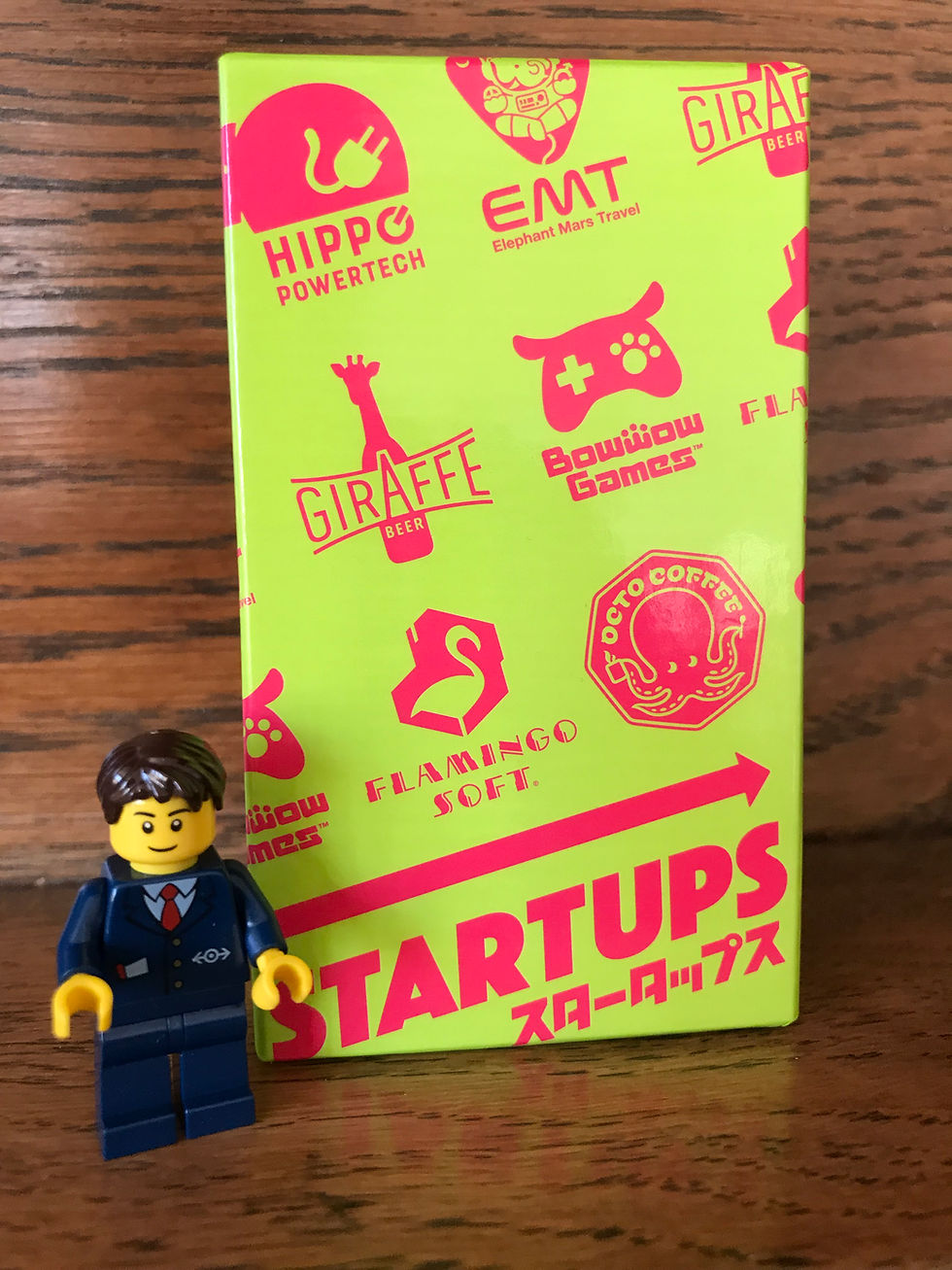Startups
- Board's Eye View

- Nov 30, 2017
- 3 min read
Updated: Feb 27, 2020
This comes in one of Oink’s characteristically tiny boxes (Lego figure shown for scale) but there’s actually more in this box than in many a bigger boxed game. Lift the lid and the contents literally spill out: on top of a pack of cards, the box is filled with pre-punched cardboard tokens.

Tipping these out, it’s the cards that are the nub of this game. They each represent shares in one of six companies. The number on the card (5 through to 10) represents the total number of shares that there are in that company (ie: the number of copies of that card). At the start of a game, five cards are removed from the pack, so players have incomplete information about precisely how many shares will be in play for each company. Then, every player is given 10 chips and dealt a hand of three cards.
In a player’s turn they always take a card and play a card – so they will always begin and end their turn with three cards in their hand. Players draw from the facedown drawpile or from the ‘market’ (a line made up of previous players’ discards). If there are cards in the market, the player can only take from the draw pile by paying one chip on each of the available market cards. If he takes a market card with chips on it, he also takes those chips.
Instead of discarding a card to the market, players can play a card in front of them to form a tableau of their shareholding. When a player’s tableau represents a 'majority' (the largest holding) of the known shareholding in that company, as will always be the case for the first player to put down a share in the company, they take that company’s 'anti-monopoly' token. While they hold that token, they cannot take shares in that company from the market – tho’ they also don’t put chips on those shares to take a drawpile card.
The game ends when the drawpile is exhausted. Players then add the three cards in their hand to their tableaux and see which player has the largest shareholding in each of the six companies. All players with a minority shareholding in a company must pay that company's majority shareholder a chip for each share in their minority holding. The chips paid over are then flipped to show they are each worth 3 chips to the recipient. If two players are tied for the ‘majority’, then none of the shareholders in that company have to pay anything. The winner is the player with the most money.
As with the card game No Thanks! (Mayfair Games), which uses a similar system of paying to not take cards, players need to make their own judgement call about when a card’s bounty makes it worthwhile to take, even though your taking it may benefit an opponent. There is a strong 'push your luck' element as players going for a majority holding take the risk that they may have to pay out heavily to a rival who pips them to it. There are opportunities for subtlety, bluffing and bluster over the cards a player holds in their hand, and the uncertainty over what others may be holding in reserve – and over the cards removed at the start of the game – serve to keep players on their toes – especially in respect of the companies with larger numbers of shares.
Startups sets up quickly and a complete game takes around 20 minutes but the game differs quite widely in nature and feel depending on the number of players. The rules suggest 3–7 players but this is a game that can be quite chaotic with as many as 7. Certainly the game is playable with three, but it doesn’t work quite so well with so few players because it offers less scope for bluffing, banter and table talk. The sweet spot is probably 5 players.
This is a good addition to Oink's niche range of games. Check it out.



